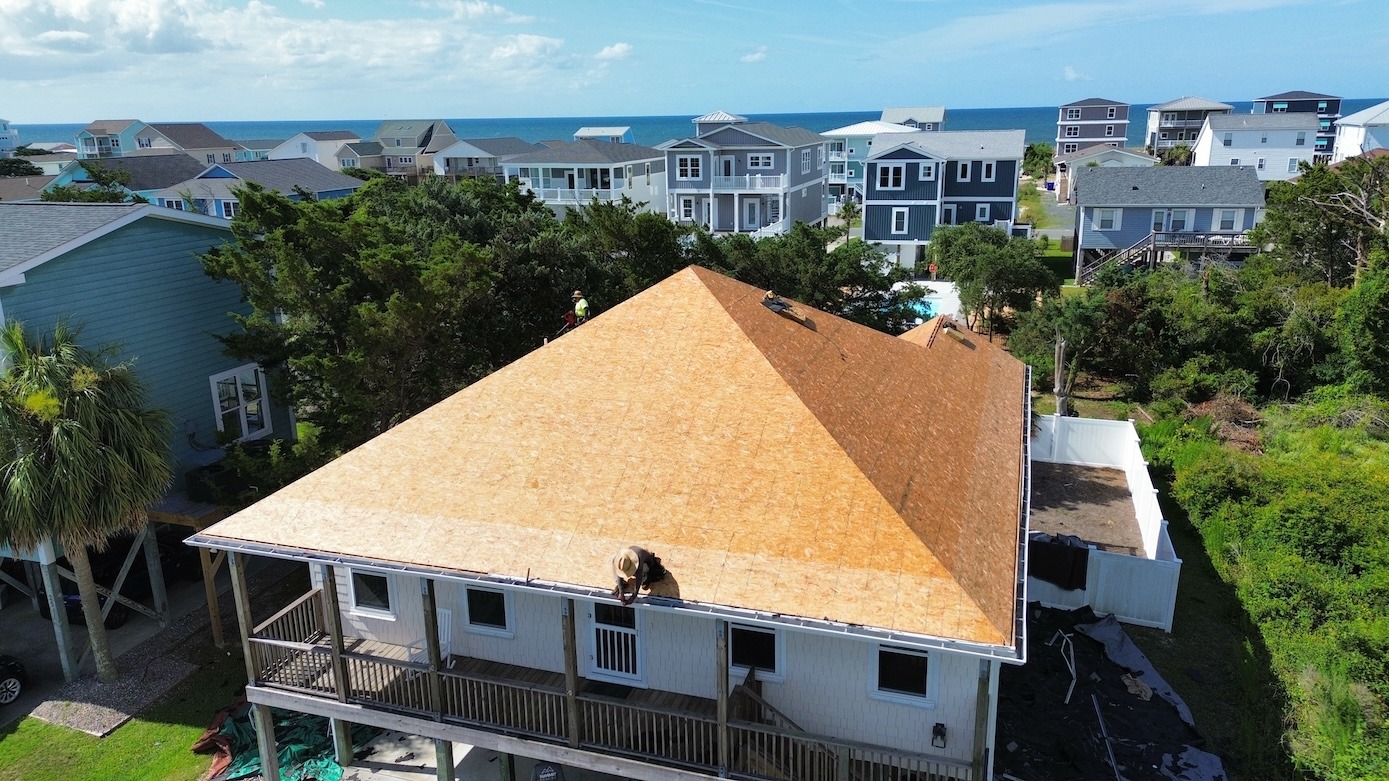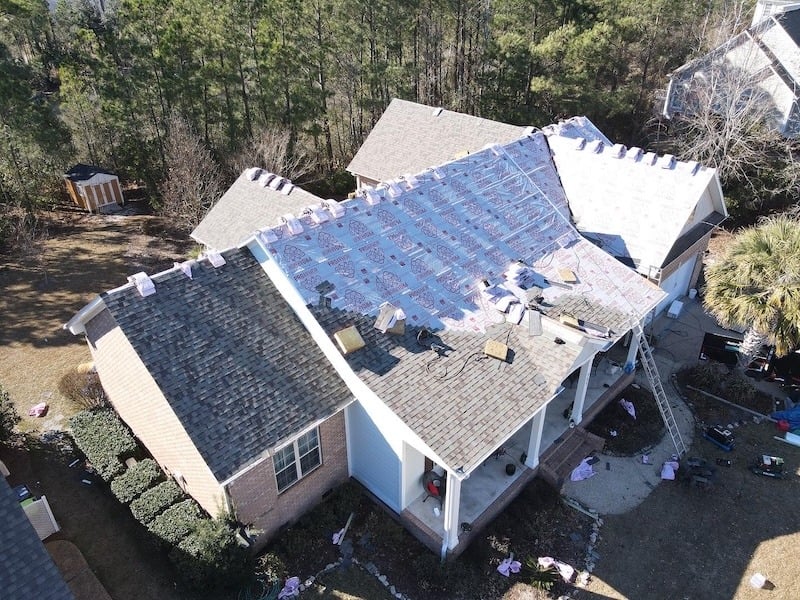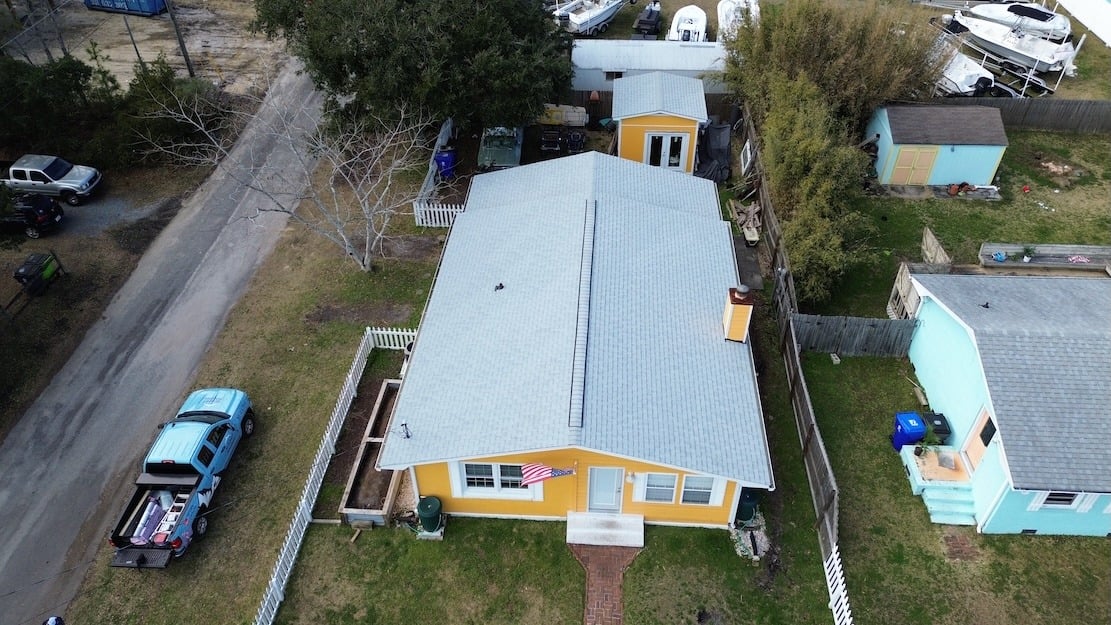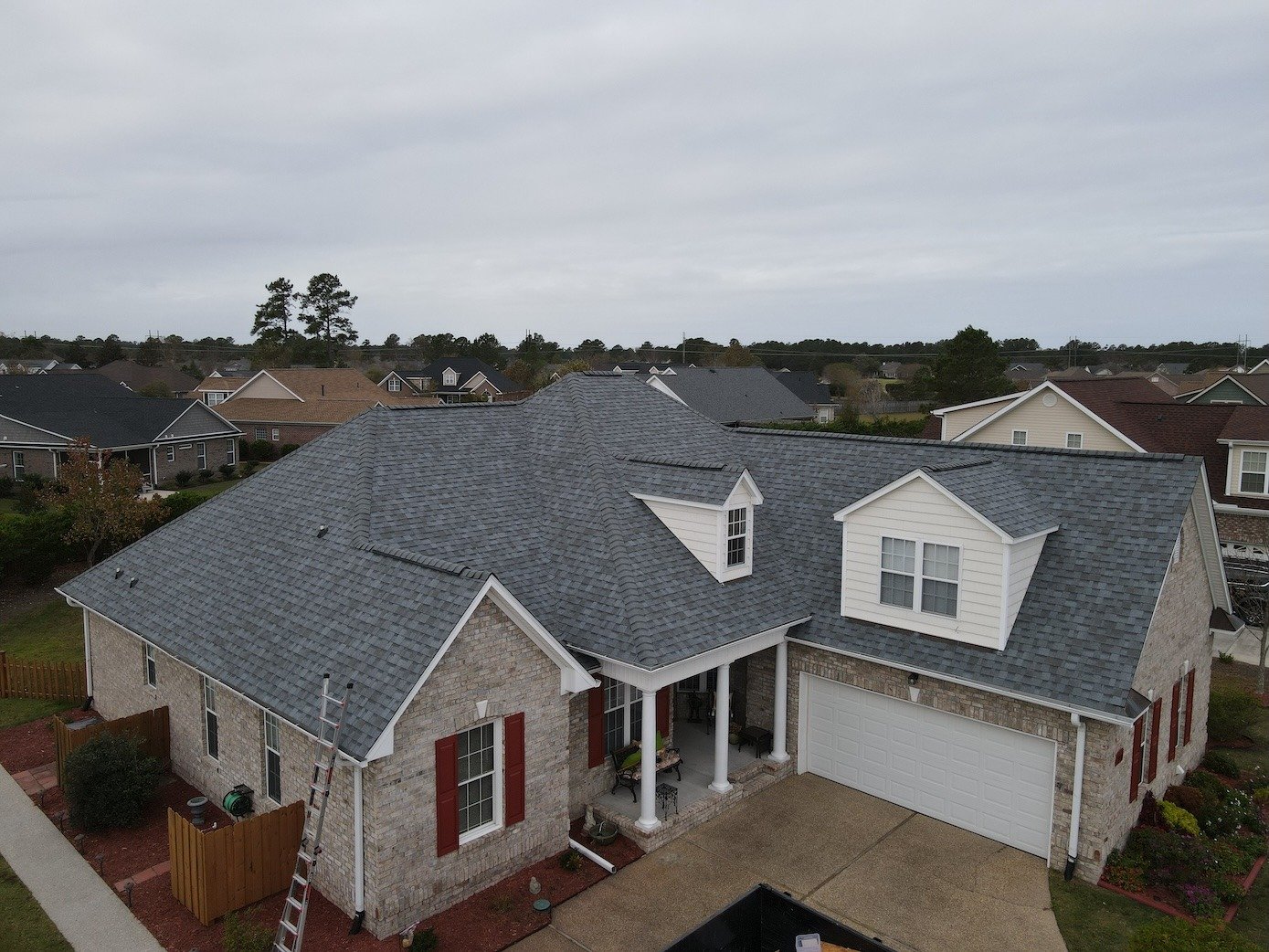What Are the Best Roofing Materials for Coastal North Carolina Homes?
Summit Roofing

Coastal homes face a unique set of challenges due to the harsh climate conditions they endure. For homeowners in coastal regions like North Carolina, durable coasting roofing must withstand high winds, salt exposure, humidity, and frequent storms. Coastal NC roofing plays an impactful role in protecting it from these elements, making it vital to choose materials specifically designed to handle these conditions.
Selecting the best coastal roofing materials is essential for safeguarding your home and ensuring long-term durability. In this article, we'll explore the best roofing material for coastal North Carolina homes and highlight the key features that make them ideal for such an environment.
What Makes Coastal Roofing Different?
Coastal regions like North Carolina are known for their distinctive weather conditions, including:
- Powerful winds
- The risk of hurricanes
- Saltwater exposure
- Intense UV rays from the sun
These factors demand specialized roofing solutions that can handle the unique challenges of a coastal climate. Saltwater can lead to corrosion, high humidity can promote mold growth, and constant sun exposure can degrade materials. Moreover, hurricane-force winds can severely damage roofs, leading to costly repairs or replacements.
This is why roofing for coastal climates must be designed to resist these elements while maintaining structural integrity and aesthetic appeal. Salt-resistant roofing and UV-resistant roofing are a must.
Best Roofing Materials for Coastal Homes
So what kind of roofing material should you choose? You have several options as presented below.
1. Metal Roofing
Metal roofing is one of the most durable and resilient options for coastal homes. It offers excellent protection against salt exposure and corrosion, which is crucial in salty environments. It's also wind-resistant roofing.
Additionally, durable coastal roofing made from metal can withstand high winds, making it ideal for areas prone to hurricanes. It also reflects sunlight, reducing heat buildup in the home and improving energy efficiency.
2. Asphalt Shingles
Asphalt shingles are popular coastal roofing options for coastal homes due to their affordability and versatility. High-quality asphalt shingles are specifically designed to resist wind damage and are often rated for hurricane conditions. Modern shingles can also be impact-resistant, providing protection against debris during storms.
However, not all asphalt shingles are suitable for coastal climates. So it's important to choose premium storm-proof roofing that offers enhanced weather resistance.
3. Clay or Concrete Tiles
Clay and concrete tiles are excellent choices for coastal homes, as they offer salt-resistant roofing capabilities.
They are highly suitable roofing for high humidity as they do not absorb moisture and resist mold and mildew growth.
While they are heavier than other materials, their longevity and ability to withstand severe weather make them a solid option for coastal areas.
4. Slate Roofing
Slate roofing provides a more elegant and long-lasting option for coastal homes. It is highly resistant to wind, weathering, and saltwater exposure, making it perfect for homes needing weather-resistant roofing.
While slate is one of the more expensive roofing options, its durability and minimal maintenance requirements make it a worthwhile investment for those seeking a high-end, weather-resistant solution in Coastal NC roofing.
5. Synthetic Roofing Materials
Synthetic roofing materials, such as composite shingles, are designed to mimic the look of traditional coastal roofing solutions like wood or slate while offering enhanced durability. These materials are often engineered to withstand harsh coastal conditions, including high winds, salt, and UV exposure.
They are also lightweight, making them easier to install, and can offer energy-efficient coastal roofing benefits by reflecting sunlight.
Hurricane and Storm-Proof Roofing Considerations
Given the threat of hurricanes in coastal North Carolina, it's essential to choose hurricane-resistant roofing materials. They are specifically rated for high wind resistance.
In addition to selecting durable materials, proper installation is critical to assure yourself of storm-proof roofing. Homeowners should consider materials that are certified to withstand hurricane-force winds and impact, as this can make a significant difference in the event of a severe storm.
Reinforced roofing systems and hurricane straps can also be installed to provide additional protection.
Energy Efficiency and UV Protection for Coastal Homes
No one wants to pay more for their electricity bill than necessary. This is even more true when everything is rising in costs and resulting in hapless finances for most homeowners.
In coastal regions, energy-efficient coastal roofing can help reduce cooling costs during the hot summer months. Roofing materials that reflect heat rather than absorb it can significantly lower indoor temperatures, leading to reduced energy consumption.
UV-resistant roofing materials are particularly important, as they prevent sun damage, fading, and degradation, all while maintaining their structural integrity in coastal climates. Opting for energy-efficient roofing materials ensures that your home stays cool and protected from the harsh sun.
Maintenance Tips for Coastal Roofing
Just like you get your car regularly maintained to ensure it lasts for a long time, the same applies to your roof.
To ensure that your durable coastal roofing lasts as long as possible, regular maintenance is essential. Routine inspections help identify and address any early signs of damage caused by salt buildup, humidity, or storms.
- Cleaning off debris, such as leaves or branches, is important to prevent moisture retention. Addressing any corrosion or weathering promptly can extend the roof's lifespan.
- Replacing damaged shingles, tiles, or panels quickly is also key to preventing more extensive issues. By staying proactive with maintenance, homeowners can minimize the effects of coastal conditions and protect their investment.
- Coastal roofing solutions from a professional roofer can assuage all of these issues in one go. Make sure to choose a roofer with a good reputation and positive reviews.
Choose the Best Roofing Material for Coastal Home Protection
There's so much you have to think of as a homeowner, but you shouldn't let your Coastal NC roofing fall off the wayside. Choosing the best roofing material for your home will help quite a bit in the long run.
Summit Roofing Company is a family-owned, local roofing business in Wilmington, North Carolina, ready to bring our expertise to your durable coastal roofing issues. We will help your roof withstand North Carolina's harsh and challenging climate.
Schedule a consultation with our team today to learn more about hurricane-resistant roofing.








